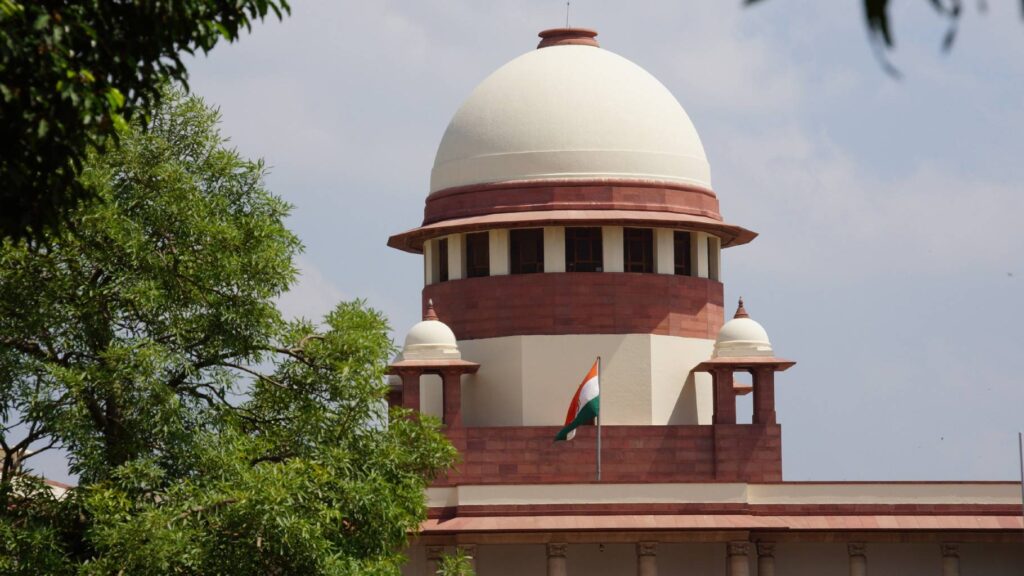Varenya Vaish
The Supreme Court has very precisely put forth the fact that instead of carrying out the sentence given as a punishment, it is possible for an appellant to be released post admonition considering the facts of the case are complementing.
The keen observation by the apex court was made while allowing the application made by the appellant, Kunti Kumari, who was sentenced to four months of simple imprisonment under section 504 of the Indian Penal Code and six months of simple imprisonment under section 3(i)(x) of the SC/ST Act by the trial court. Though the conviction under the SC/ST Act was scrapped by the High Court of Jharkhand, punishment under the IPC was still upheld. The Supreme court, post several contentions pertaining to the sentence given to the appellant to serve, accepted the appeal and directed the release of the appellant after due admonition.
The decision of carrying out the aforementioned, which is of dismissing the conclusion of the High Court of Jharkhand, was made by a bench comprising Justice Vikram Nath and Justice S. Abdul Nazeer.
In the present case, the appellant was formerly a respondent who had not only resorted to brutal insults but also abused the community, the complainant belonged to, in order to breach the peace. The complainant, Amita Tudu, president of Village Education Committee, Middle School, Kora Para, who was getting ready to distribute meal packets to all the members involved in a budget meeting, was not only subjected to massive slander in front of several other faculty members, by the respondent, now appellant but was also subjected to mental harassment by the appellant.
A complaint pertaining to the same was registered in the police station of Jamtara followed by an investigation and then proceed by the trial court where the respondent was accused under section 504 of IPC and section 3 (i)(x) of SC/ST Act. The respondent, now appellant, when filed an appeal in the high court, though partially dismissed, still had the appellant convicted of section 504 of the IPC, having reduced the sentence to 15 days of simple imprisonment.
The basis of having the appellant convicted under section 504 of the IPC, was the fact that the trial court, as well as the High Court, went through the process based upon the appreciation of the evidence presented by the prosecution. However, the Supreme Court put forth that:
“In that view of the matter, we are not inclined to enter into the appreciation of evidence at this stage and accordingly confirm the conviction.”
With regards to the sentence, the learned counsel for the appellant relied on the provisions contained in the Probation of Offenders Act, 1958. Section 3 of the aforementioned act gives the court the power to release certain offenders after admonition when a person is found guilty of having committed any offense punishable with imprisonment for not more than two years, or with a fine, or with both, complemented with the fact that there has to be no previous conviction proved against such offender. Considering these, the current case has the appellant convicted under section 504 of IPC where the punishment is of 2 years maximum, as well as the fact that there are no previous convictions attached.
The learned counsel further submitted that, according to section 11 of the act, any order under the act can be made by any court who has the authority to sentence offenders to imprisonment as well as by the high court or any other court when such a case is presented before them in the form of an appeal or as revision.
Taking cognizance of all the said arguments, the Supreme Court marked the decision that:
“Considering the facts and circumstances of the case, we deem it appropriate that the appellant may be released instead of carrying out the sentence after due admonition. Accordingly, agreeing with the conviction under Section 504 IPC, the appellant is directed to be released after admonition under 4 Section 3 of the 1958 Act. To that extent, the sentence is modified, and the appeal is allowed.”
Check the copy of the full judgment here.
Kunti Kumari vs. State of Jharkhand
CRIMINAL APPEAL NO(s).590 OF 2022 (arising out of SLP (CRL.) No(s). 1406 of 2017)


